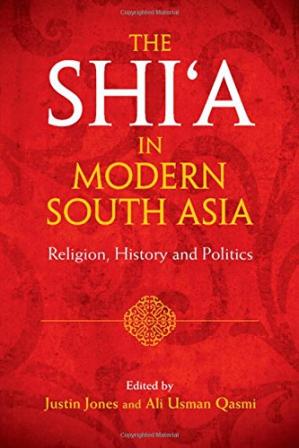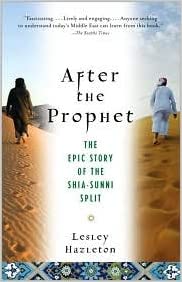In the quiet city of Pol-e-Khomri in northern Afghanistan(Afghan), the echoes of a suicide bomber’s detonation reverberated through a Shiite Mosque during Friday prayers, claiming the lives of at least seven worshippers and leaving 15 others injured, as disclosed by police spokesperson Sher Ahmad Borhani. The investigation is actively underway to fathom how the attacker infiltrated the sacred space of the Imam Zaman Mosque.
The Islamic State of Iraq and Syria’ (ISIS) on October 13, 2023, claimed responsibility for a suicide attack inside a Shia mosque in Pul-e-Khumri, the capital of Baghlan province. The attack was carried out during Friday’s prayers at the Imam Zaman mosque, killing at least seven worshippers and wounding at least 17 others, according to local officials. [Courtesy of Nasrullah Amini]
The Islamic State swiftly claimed responsibility for the attack, a harrowing recurrence in their targeted assaults on Afghanistan’s Shiite minority. Disturbing footage from the mosque, disseminated by the Taliban, depicted scenes of devastation—debris strewn across, personal belongings scattered, and shrouded bodies. Despite the Taliban’s endeavors to restrain the militant group, the Islamic State remains a looming security threat in Afghanistan, particularly since the group ascended to power in August 2021.
The silence around the genocidal attacks on Shia Muslims begs a critical question: Is there a disparity between the blood spilled in Afghanistan and that of Palestinian Muslims? If not, why does the global community remain mute in the face of Takfiri Islamists’ onslaught on Afghanistan’s Shia Muslims?
Richard Bennett, the special rapporteur on the human rights situation in Afghanistan, sounded the alarm about ‘systematic’ attacks on Afghan Shia groups in September 2022, but his warnings fell on deaf ears. In Afghanistan, the persecution and genocide of Shia Muslims persist unabated, with the international community seemingly ineffective in quelling this humanitarian crisis.
He condemned the recent attack,
“I condemn today’s attack killing dozens of Shia worshippers at a mosque in Pul-e Khumri Baghlan and claimed by ISKP. My condolences to the victims & their families. Prevention, protection & accountability are needed for Afghanistan Shia population that continues to be targeted,”
Within Muslim societies, prominent organizations like the Muslim Brotherhood and Jamaat-e-Islami play an ambivalent role. While vocal about issues in Palestine, Kashmir, and the Moro Philippines, they maintain a conspicuous silence regarding the genocidal campaign against Shia Muslims by Takfiri terrorists in Afghanistan.
As we grapple with this glaring silence, the tragic incident on October 13, 2023, unfolds. A suicide bomber, claiming allegiance to the Islamic State of Khorasan, targeted a Shia Mosque in Baghlan province, resulting in the immediate death of 20 Shia Muslims. While Palestinian Muslims and Islamofascist organizations globally raised their voices against perceived injustices, none condemned the Islamic State’s role in the Afghan attack.
Ashok Swain, Professor of Peace and Conflict Research at Uppsala University, highlighted this paradox. He questioned the marches against Israel’s aggression in Kabul, urging the same fervor against Islamists killing Shia and Hazara populations.
https://x.com/ashoswai/status/1712811974822678640?s=20
The ensuing comments underscored the prevalence of deep-rooted conspiracy theories among Sunni Muslims, revealing a reluctance to acknowledge internal strife.
https://x.com/bint_e_adam66/status/1712820532628865318?s=20
The far-right intelligentsia in Muslim societies propagates conspiracy theories attributing attacks on Shia Muslims to external forces such as Indian, Israeli, and American agents. This deflects attention from the real issue—the factories of Takfiri ideology—and fuels discord between Sunni and Shia Muslims.
On the day of the Shia Mosque attack in Afghanistan, the Sipah Sahaba Pakistan (SSP)/Ahlul-Sunnah Wal-Jamaat (ASWJ) held a conference in Islamabad characterized by hate speech against Shia Muslims. During this event, speeches promoting hatred and incitement against Shia Muslims were delivered. The speakers declared Shia Muslims as ‘apostates’ and advocated for their classification as a non-Muslim minority. Notably, the organization responsible for organizing this conference is listed among the ‘prohibited organizations’ by the National Counter-Terrorism Authority-NCTA, and the majority of the participating speakers are named in the Fourth Schedule list.
Deobandi Molvi Sher Tasadduq, leader of the banned outfit Sipah Sahaba/ASWJ, is disseminating hate speech against religious minorities and denouncing Shias as infidels at the National Stadium in Islamabad.
Shockingly, the Palestinian Chargé d’Affaires in Pakistan, Nader Khamis Al-Turkr, addressed the conference, seemingly unaware of its sectarian nature. The Islamabad administration not only permitted this Shia-phobic conference by a banned outfit but accorded full protocol to leaders identified in the Fourth Schedule List.
Islamabad: The Palestinian Ambassador to Pakistan is addressing a conference at the National Hockey Stadium organized by the banned outfit ASWJ, which has been noted for promoting hostility towards Shia Muslims.
This silent complicity and selective outrage underscore a global failure to address the plight of Shia Muslims in Afghanistan, mirroring a broader pattern of indifference that demands urgent attention and condemnation.
References:
https://apnews.com/article/afghanistan-blast-shiite-mosque-baghlan-800a522555cb74777fc01c58f5f96663
https://www.aljazeera.com/news/2022/9/12/un-expert-decries-systematic-attacks-on-afghan-shia-groups
https://www.dawn.com/news/1780895






